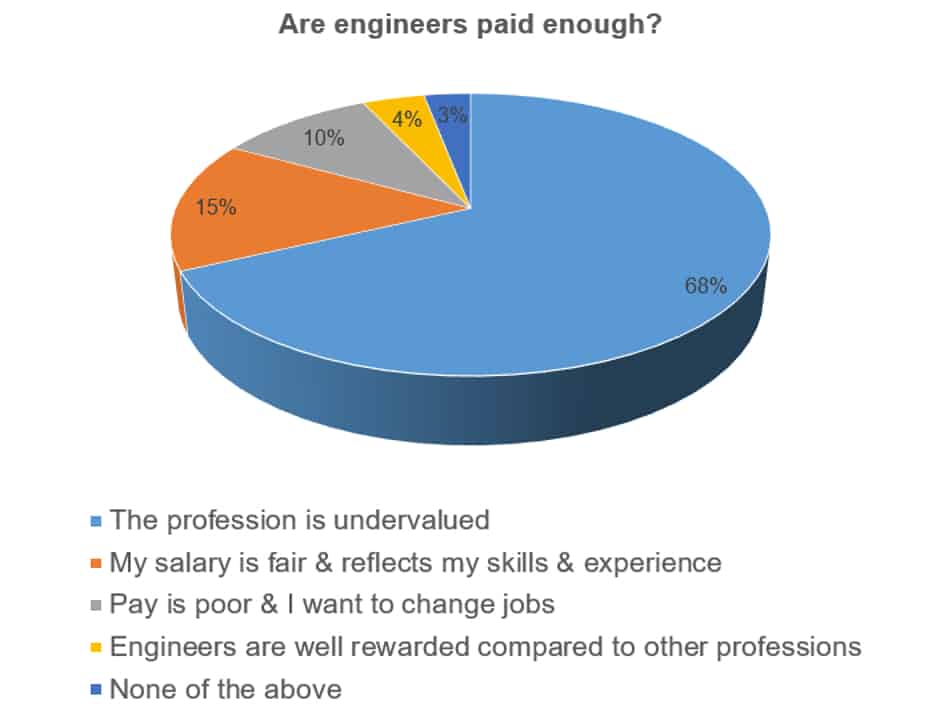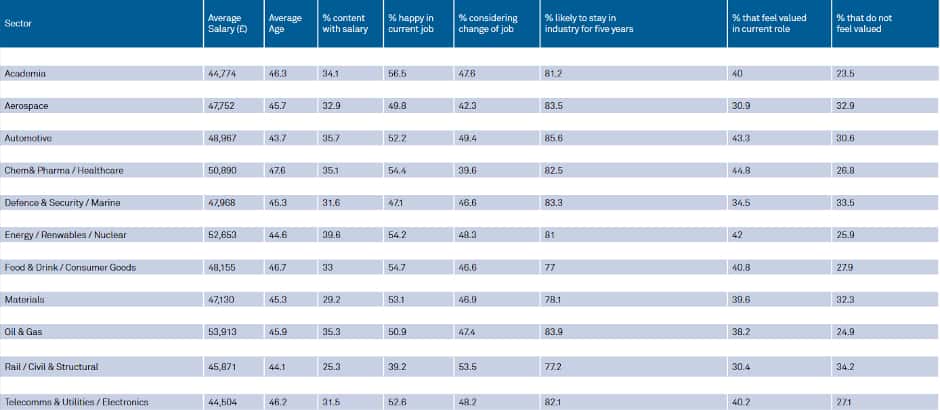On the whole, the engineers who took part in our 2018 salary survey are happy in what they do, but not happy with what they’re paid.

Of the 558 people who took part in our online poll, 68 per cent thought engineering is undervalued, and 10 per cent are so unhappy they are looking to change jobs. As the table below shows, an average of 47 per cent of salary survey respondents are thinking the same way.
Just under a fifth of respondents (19 per cent) to our online poll made positive noises about their pay with 15 per cent believing their salary is fair as it reflects their skills and experience, and four per cent who thought engineers were well rewarded compared to other professions. Three per cent of respondents chose the ‘none of the above option’.

Salary survey snapshot
Over 50 per cent of engineers in eight of the 11 sectors covered in The Engineer Salary Survey 2018 state they are happy in their current jobs, but this isn’t matched with salary satisfaction. At 39.6 per cent, engineers in energy/renewables/nuclear are most satisfied with their remuneration compared to 25.3 per cent of rail/civil & structural engineers.
As outlined in the full report, average engineering salaries haven’t changed much over the past 12 months. Indeed, the overall mean average salary for engineers taking part in the survey is actually lower than last year, standing at £47,896 in 2018 compared to £48,197 in 2017.
Detailed analysis of this year’s survey results – including average salary breakdowns by sector, region and seniority – can be found here. You can see how your salary stacks up against that of your industry peers using our online salary benchmarking tool.





Virgin Atlantic’s Flight100 saved 95 tonnes of CO2 in first SAF flight
LOL a time-honoured unit of volume measurement,, just as large <i>AREAS</i> are expressed as multiples of the size of Wales … or renewable energy...